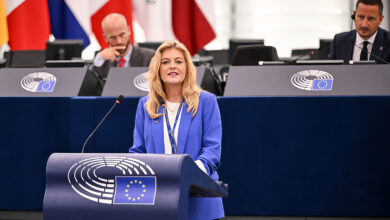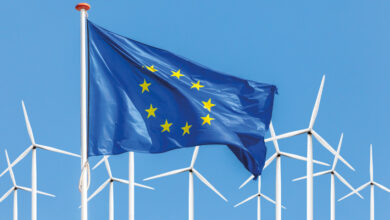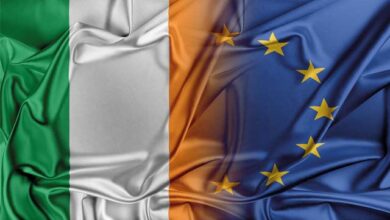Energy markets in uncertain times
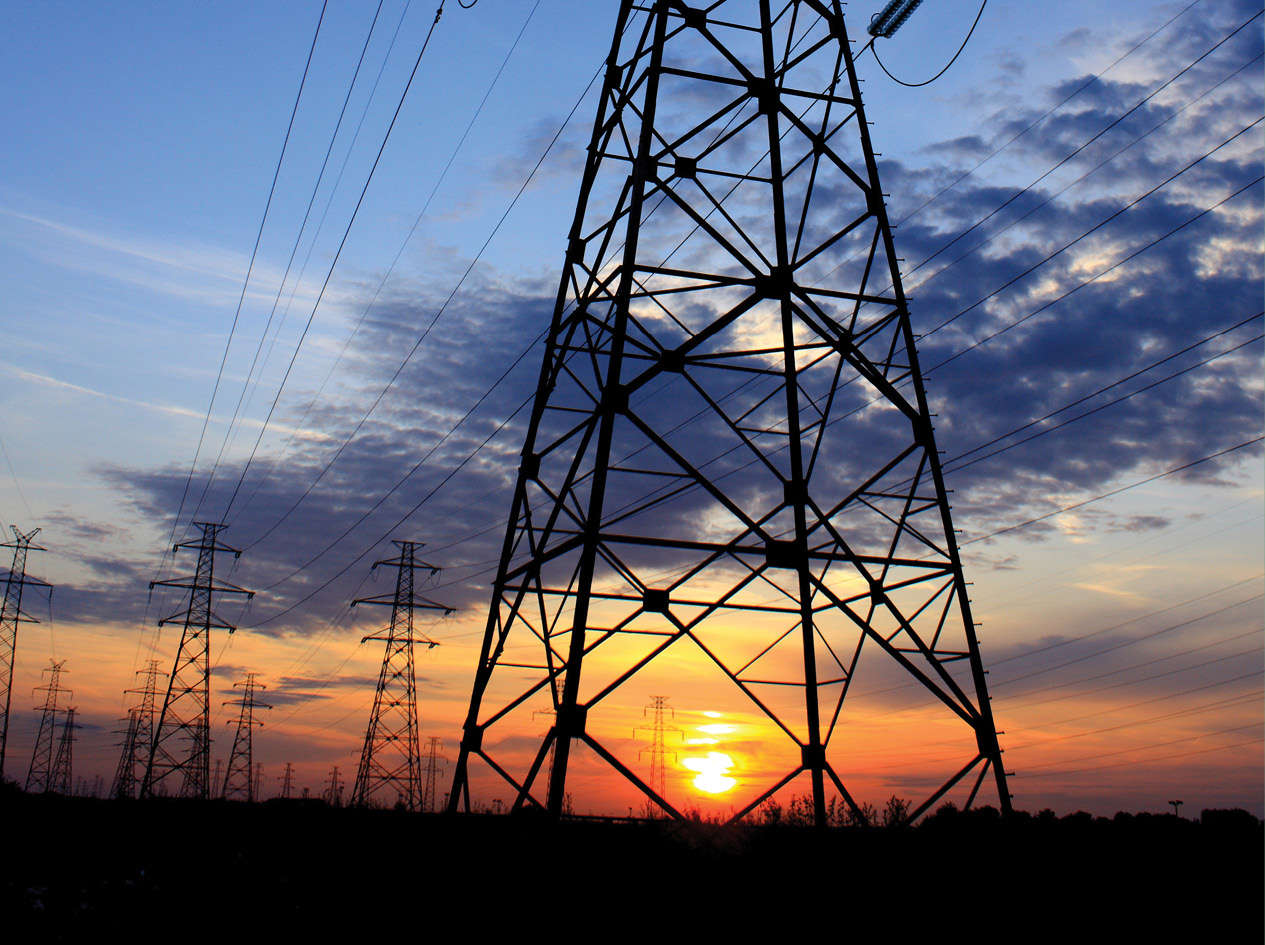
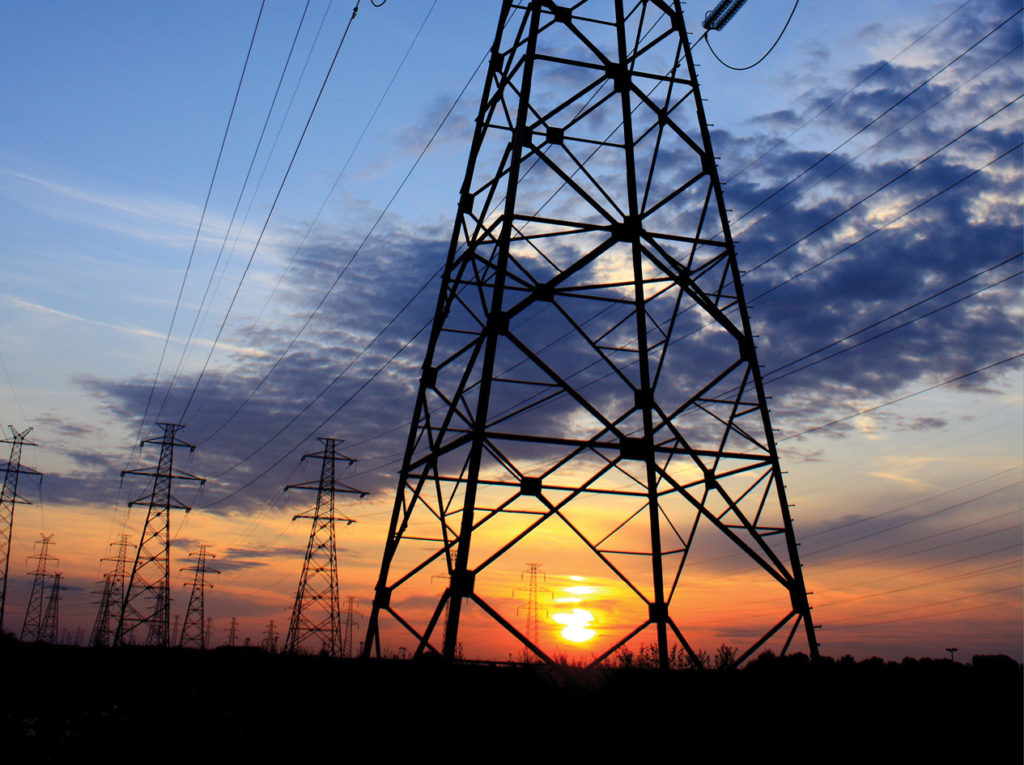
Owen Wilson, Chief Executive of the Electricity Association of Ireland (EAI) discusses the implications of Brexit for the Irish electricity sector.
Based on the assumption that policy makers will wish to continue with the Integrated Single Electricity Market (I-SEM) post-Brexit and that the UK will continue to at least play an active role in the internal energy market, Owen Wilson identifies gas as a primary concern.
For Ireland the continuation of tariff-free trade across interconnectors is critical because without it they face the prospect of a doubling effect of new import tariffs, once when gas is imported into the UK and potentially again when it is imported through Moffat. A similar risk of tariffs arises in relation to the East-West electricity interconnector. Another area of concern relates to continuation of the current emergency response arrangements in place in relation to gas, an arrangement that pre-dates energy market arrangements at a European level.
On the electricity side, tariff-free trade across interconnectors is also attracting major focus, however, as Wilson explains, while a solution for trading across interconnectors post-Brexit is necessary, it is not a sufficient requirement for the retention of SEM/I-SEM.
“There is broad recognition that a problem exists here but the primary focus of attention will be on ensuring trade across interconnectors, not solely around the operations of the interconnectors themselves, but also the ancillary activities such as financial arrangements associated with trading. In the context of the SEM/I-SEM, additional negotiations will need to take place to address areas such as governance, administration, reporting and legal solutions, which will allow these markets to provide the necessary level of long-term certainty for investment.”
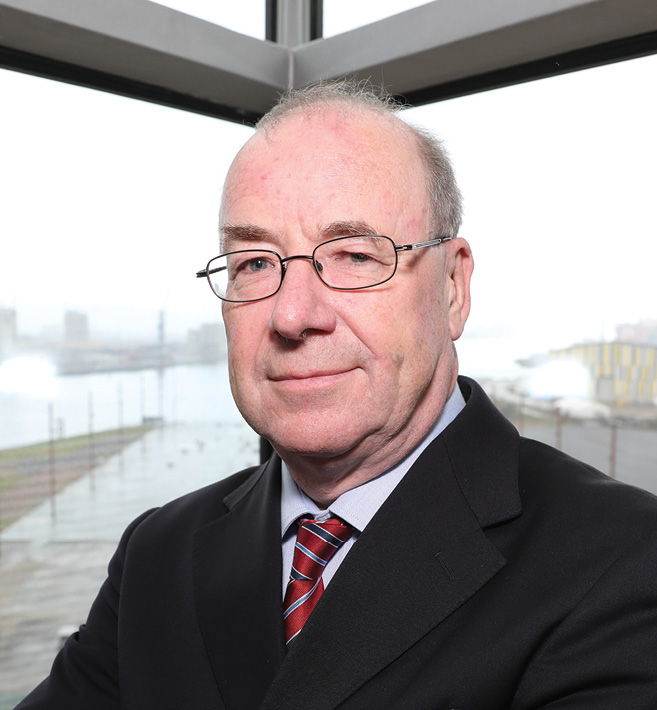
“Any energy deal will have to be done in the context of wider market considerations, not just the IEM.”
EAI, which represents Ireland’s electricity industry within the single market, covering about 90 per cent of generation supply and both distribution companies, have drawn up a policy position and is actively engaging with its UK partners, Energy UK, and at a European level to ensure its voice is heard.
Wilson lists their desired outcomes as:
• efficient market functioning with tariff-free trading;
• energy, environment and related policy frameworks remain coordinated;
• no barriers to retention of SEM/ISEM;
• existing security of supply (gas) agreements maintained; and
• energy should not become a political pawn.
Speaking about the desired actions EAI would like to see, Wilson says: “Ideally we would like to see energy negotiations treated separately from trade negotiations on a single market. Energy is a sector of the economy but is also horizontal across all other sectors and we believe it needs special consideration. We are aware that addressing energy issues is an important but not urgent element of the overall negotiations due to the unique scenario where we are starting from a point of harmonisation. This means that on day one the customer and the industry will not feel an impact, however, the day 100 or day 1,000 problems need to be sorted out now so that the industry has the certainty to make the investments that will be required in the upcoming years. These negotiations will not be swift and we need to ensure that during this, assurances exist that there will be no changes to the existing arrangements until a deal is finalised.”
While the UK has stated their interest in continuing to participate in the energy market and expand interconnections, especially in Ireland, via Energy Minister Greg Clark in April, Wilson believes that the obstacles that stand in the way of a smooth transition are not trivial. Having engaged with the EU’s Brexit taskforce he states that trading will not be a major issue given the current infrastructure that exists, but that terms and conditions of the use of interconnectors will provide a sticking point.
One of the most challenging barriers will be the reconfiguration of the UK as a third country in the context of the International Electricity Market (IEM). Wilson explains: “Any energy deal will have to be done in the context of wider market considerations, not just the IEM. The EU considers any deal must not undermine the current IEM structure or existing third country relationships. The notion that all the same attributes that apply to member states can also apply to the UK, no longer holds true. In this context, the issue of what is deemed by the commission to be ‘regulatory dumping’ comes to the fore in terms of the future arrangements. The EU will require equivalent rules on state aid, public procurement, financial regulations, energy and climate etcetera.”
In terms of the future for SEM/I-SEM, Wilson states that with the potential for obstacles to be placed in the way of their continuation, in the form of legal or regulatory blockages, the existing non-legally binding memorandum of understanding, which establishes SEM, may need to be further formalised to give investors confidence going forward.
Dependencies include the UK and Ireland Governments’ abilities to develop a framework acceptable to the EU Commission on top of the wider cross-border electricity trade deal struck by the UK and Europe. However, there is positivity in the awareness around the SEM/I-SEM sensitivities by the Brexit negotiators and the active involvement of the industry in the debate.

